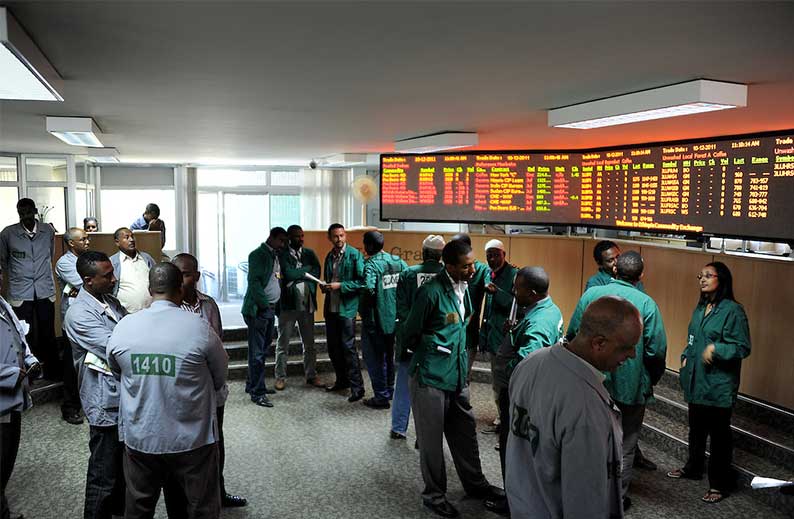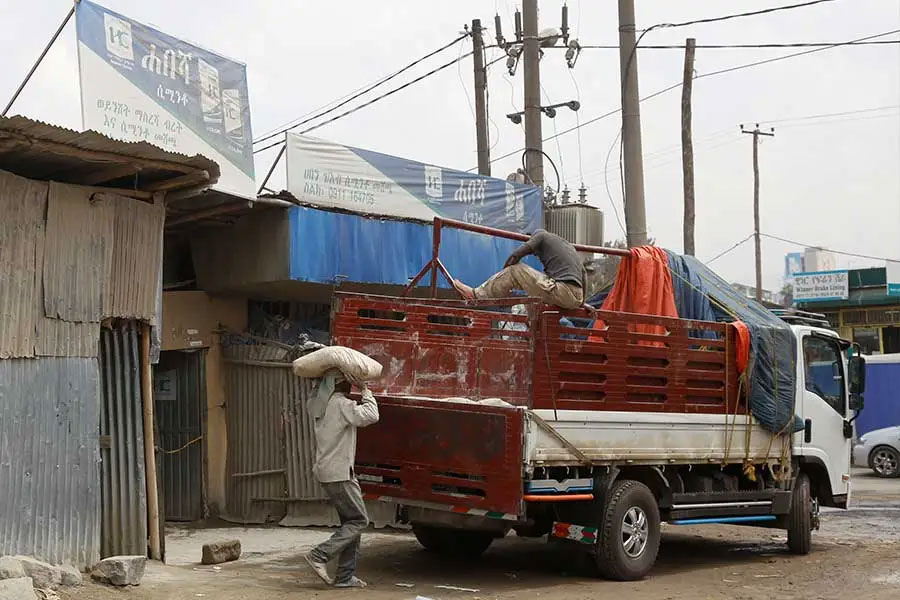
Fortune News | Aug 05,2023
Abdulkadir Gelgelo (MD), director general of the Ethiopian Pharmaceuticals Supply Agency (EPSA), is attempting to revitalise the national drug supply chain, broadening the Agency’s revenue streams. His efforts come as public health centres buckle under a crippling shortage of medications and medical supplies.
When Parliament reconvenes in September, the Director and his deputies hope to table the new bill to legislators.
Reestablished in 2007, the Agency supplies pharmaceuticals and medical equipment to state-run health institutions and private facilities through its 19 branches. Two of these are in the Tigray Regional State, out of operation since late 2020. The Agency taps on a revolving drug fund financed revenues it generates and contributions from donors. Over the first three quarters of last year, the EPSA supplied public health institutions with drugs and medical equipment valued at 25 billion Br.
However, its officials say the volume is hardly sufficient to meet demand.
Abdulkadir was appointed head of the Agency two years ago, transferred from the Oromia Health Bureau. His legal experts are drafting a bill allowing the Agency to borrow from domestic financial institutions.
The bill proposes to reorganise the revolving fund to maintain constant and adequate drug supplies. The fund’s operations will be overseen by an 11-member board of directors comprising officials from the Ministry of Health (MoH), the Customs Commission, and the Ministry of Transport & Logistics.
The bill will also allow the Agency to engage in bulk procurement, coordinating its activities with other institutions operating in the health sector.
Officials say the ambiguous line of responsibilities in the health sector has been detrimental to drug supply. There are at least five entities in the pharmaceutical supply chain, including the Agency, the Health Ministry, and regional health bureaus. They conduct forecasting, procurement, storage, and distribution of pharmaceutical products independently, complicating the supply chain and creating a duplication of efforts.
The restructuring of the Fund will help to bring the scattered drug procurement efforts under a single unit, according to Awole Hassen, communications director.
However, the pharmaceutical supply’s most pressing problem remains inadequate financing.
“The demand for drugs is beyond the budget allocated for drug procurement,” said Regassa Bayesa, director of drugs and medical supplies at the Health Ministry.
The World Health Organisation (WHO) recommends that developing countries set aside 40pc of the annual health budget to procure drugs and medical supplies. Ethiopia sees around half the recommended ratio allocated to procurement.
The Agency provides over 1,000 medicines and medical equipment to over 5,000 public health institutions. It charges the health centres it serves 10pc in service fee. Awole described this as “low considering the size of the operation.”
The bill in the making proposes to grant the board of directors the mandate to set profit margins on the sale of drugs supplied by the Agency.
Part of the problems in the pharmaceutical supply chain is the high foreign exchange required to import drugs and equipment. Local pharmaceuticals, strapped on forex, produce at a fraction of capacity. They have placed applications for letters of credit for 15 million dollars to import inputs.
“We have yet to receive a response,” said Daniel Waktole, president of the Pharmaceutical Manufacturers Association, an industry lobby group representing 17 members.
The Agency previously sourced a quarter of its supplies from local manufacturers. The share has dropped to less than 10pc. In neighbouring Kenya, domestic pharmaceuticals cover enough to meet half of the country’s drug demand.
Hospitals are required to keep two months of stock. However, most health institutions struggle to maintain two weeks’ medication supplies in their inventories.
The pressure is evident at the Tikur Anbessa (Black Lion), the country’s oldest and largest public hospital with 1,000 beds and over 3,400 employees. Its medical staffs treat an average of 20,000 patients a day. The Hospital depends on Abdulkadir and his team to meet its drug demand. However, it has been receiving 60pc of what it requires.
Tikur Anbessa Hospital turns to the Health Ministry and international humanitarian organisations for help, according to Demisse Gezahegn, director of pharmacy at Black Lion General Hospital.
Abdulkadir is beholden to guidelines enforced by the Public Procurement & Property Authority, a federal agency that oversees procurements by public institutions.
Health practitioners say the procurement of pharmaceuticals should have exceptions that set it apart from other public procurement processes. Nonetheless, the absence of a clear procurement policy forces Abdulkadir to stick to the rules.
“The public procurement guidelines don’t fit with pharmaceutical purchases,” said Demisse.
Hospitals like Black Lion buy drugs from manufacturers through open tenders. Often, this brings little success, according to Demisse.
“And when we succeed, delivery can take up to four months,” he told Fortune.
After opening a letter of credit for procurements, it takes an average of 137 days to receive the drugs after a letter of credit is opened. It is almost three weeks longer than the 120-day standard set by the Health Ministry.
Regassa says sudden disease outbreaks require rapid responses, which the federal procurement guidelines do not permit. Last year, Health Minister Lia Tadesse (MD) tabled a proposal to create a separate procurement policy for pharmaceuticals.
“The request has not been addressed yet,” Regassa disclosed.
Soaring drug and medical prices are an added burden on the Hospital’s strained financial resources. Officials say that drugs for cancer patients consume almost half of the budget allocated to drug procurement.
PUBLISHED ON
Jul 23,2022 [ VOL
23 , NO
1160]

Fortune News | Aug 05,2023

Radar | Jan 21,2023

Agenda | Nov 23,2019

Covid-19 | Apr 04,2020

Radar | Nov 30,2019

Featured | Apr 22,2022

Fortune News | Jun 29,2019


Fortune News | Aug 27,2022

Fortune News | Feb 04,2023

Dec 22 , 2024 . By TIZITA SHEWAFERAW
Charged with transforming colossal state-owned enterprises into modern and competitiv...

Aug 18 , 2024 . By AKSAH ITALO
Although predictable Yonas Zerihun's job in the ride-hailing service is not immune to...

Jul 28 , 2024 . By TIZITA SHEWAFERAW
Unhabitual, perhaps too many, Samuel Gebreyohannes, 38, used to occasionally enjoy a couple of beers at breakfast. However, he recently swit...

Jul 13 , 2024 . By AKSAH ITALO
Investors who rely on tractors, trucks, and field vehicles for commuting, transporting commodities, and f...

Oct 18 , 2025
The political establishment, notably the ruling party and its top brass, has become p...

Oct 11 , 2025
Ladislas Farago, a roving Associated Press (AP) correspondent, arrived in Ethiopia in...

Oct 4 , 2025
Eyob Tekalegn (PhD) had been in the Governor's chair for only weeks when, on Septembe...

Sep 27 , 2025
Four years into an experiment with “shock therapy” in education, the national moo...